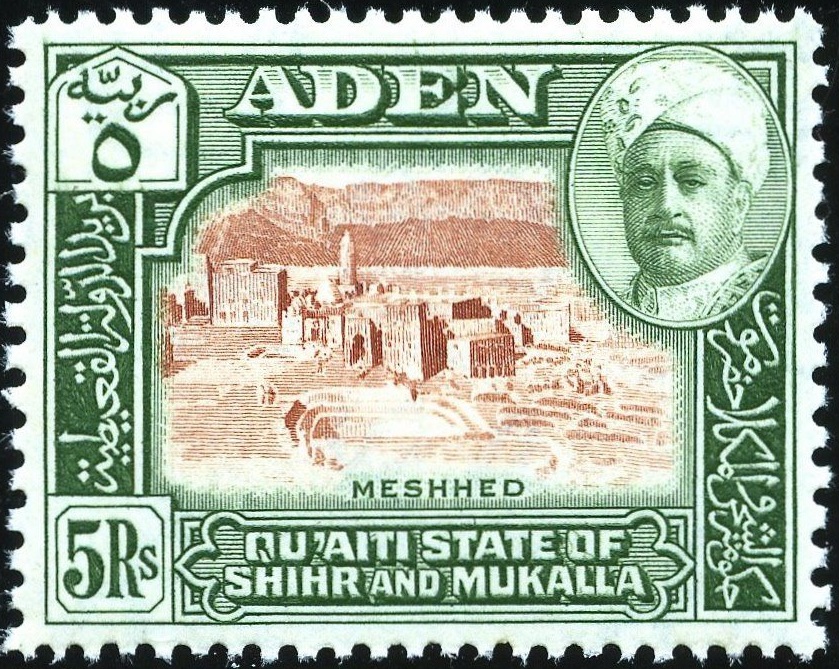Qu’aiti, officially the Qu’aiti State in Hadhramaut or the Qu’aiti Sultanate of Shihr and Mukalla, was a sultanate in the Hadhramaut region of the southern Arabian Peninsula, in what is now Yemen. Qu’aiti was the third largest kingdom in Arabia after the Kingdom of Saudi Arabia and the Sultanate of Oman. Its capital was Mukalla, and it was divided into six provinces including Al-Mukalla, Ash-Shihr, Shibam, Du’an, the Western Province and Hajr. Apart from Al-Mukalla, Ash-Shihr and Shibam were the Sultanate’s major cities.
The Sultanate spanned the Indian Ocean coast up to the border of Mahra, encompassed Shabwa, the central valleys and oasis settlements of Hadhramaut, and controlled the southern Empty Quarter.
Sons of Umar bin Awadh al Qu’aiti, who became a jemadar in the forces of the Nizam of Hyderabad State (now in India), first took the town of Shibam from the rival Kathiris in 1858 to consolidate their rule over all of Hadhramaut. They later conquered Ash-Shihr in 1866 and Mukalla in 1881, largely replacing the Kathiris to control most of the Hadhramaut coast on the Gulf of Aden. They entered into treaty relations with the British in 1888, and created a unified sultanate in 1902 that would become a part of the Aden Protectorate.
As Great Britain planned for the eventual independence of South Arabia in the 1960s, Qu’aitis declined to join the British-sponsored Federation of South Arabia but remained under British protection as part of the Protectorate of South Arabia. Despite promises of a UN referendum to assist in determining the future of the Qu’aiti State in South Arabia on 17 September 1967, communist forces overran the kingdom and, in November of that year, the Qu’aiti State was integrated forcibly without a referendum into communist South Yemen. South Yemen united with North Yemen in 1990, again without a referendum, to become the Republic of Yemen.





